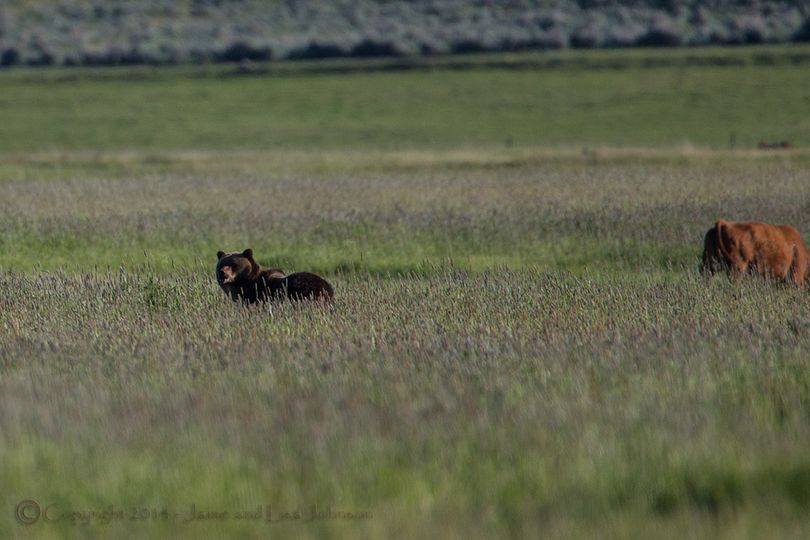Human encounters take toll on Montana grizzly bears

WILDLIFE -- Eighteen grizzly bears have been killed in encounters with humans in north-central Montana this year, but none had to be destroyed by wardens because they became troublesome, state and federal experts said at a recent conference in Missoula.
The statistics were disclosed last week by the Interagency Grizzly Bear Committee, a group that oversees the recovery of the threatened species. The story was reported by The Missoulian.
The statistics cover the 9,600-square-mile Northern Continental Divide Ecosystem in Montana. It’s one of six grizzly bear recovery zones in Idaho, Montana, Washington, Wyoming and the Canadian province of British Columbia.
The 18 bears died in encounters with hunters, landowners, cars or other situations, officials said.
Between 2000 and 2010, game wardens killed nearly 70 grizzlies in the Northern Continental Divide Ecosystem because the bears’ behavior became a problem, the interagency committee said.
The reason for this year’s decline in deaths by wardens is being studied.
Biologists said it was a good year in Montana for grizzlies’ natural food, including huckleberries and chokecherries, but they still reported problems with bears eating cultivated crops and chickens.
“They’re getting into radishes, alfalfa — it’s just ramping up,” said Jamie Jonkel, a biologist with Montana Fish, Wildlife and Parks.
The Fish and Wildlife Service estimates a total of 1,400 to 1,700 wild grizzly bears remain in the western U.S.
